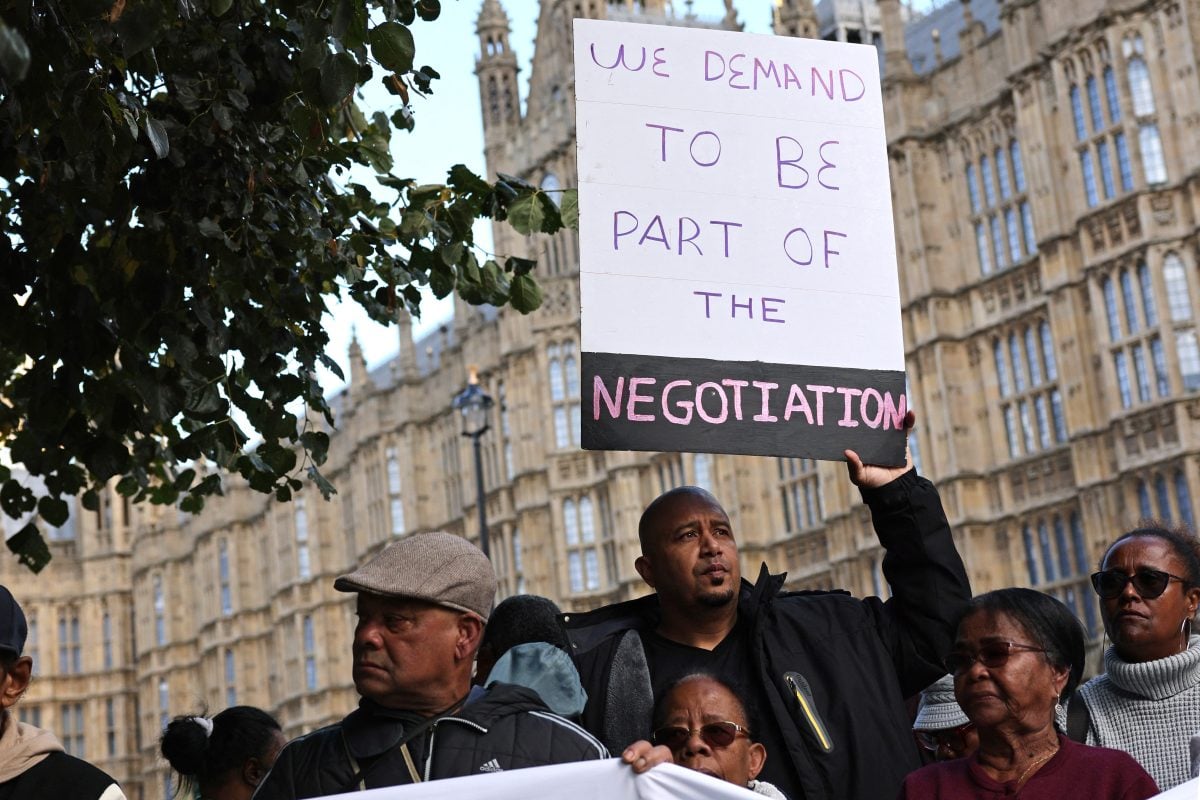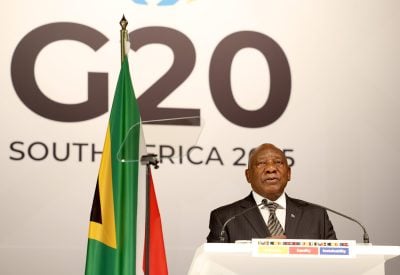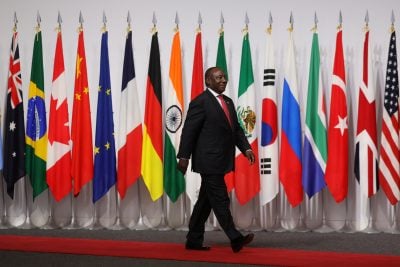Earlier this month, the UK government announced that it is to relinquish sovereignty over the Chagos Islands, a remote cluster of islands in the Indian Ocean which the African country of Mauritius has long laid a claim to.
The islands are considered to be of strategic significance both because of their geographic location between continents in the middle of the Indian Ocean, and because they are home to a joint US-UK military base at Diego Garcia. Under the terms of the deal announced at the start of October, Mauritius will assume full sovereignty over the Chagos Islands, including Diego Garcia, and receive a package of financial support from the British government. However, the UK will be authorised to continue operating its military base at Diego Garcia for an initial period of 99 years.
In a joint statement with the Mauritian President Prithvirajsing Roopun, British Prime Minister Keir Starmer said the upcoming treaty finalising this agreement will “address wrongs of the past and demonstrate the commitment of both parties to support the welfare of Chagossians.”
“It will also herald a new era of economic, security, and environmental partnership between our two nations.”
This announcement and its timing largely took foreign policy analysts by surprise, even though the former Conservative-led government agreed to open talks with Mauritius over the status of the islands back in November 2022.
Indeed, while Mauritius and the African Union have called for an end to British sovereignty over the Chagos Islands for many years, seeing the territory as the final remnant of British colonialism in Africa, any discussions that have taken place previously have tended to yield few results.
One reason for this is British and American concerns over the influence of China on Mauritius: Beijing has invested heavily in strategic infrastructure on the island, such as dams and airports, and has a wide-ranging political and economic relationship with Port Louis.
China hawks in both the UK and US have therefore feared that Mauritian sovereignty over the Chagos Islands would potentially open the door for an increased Chinese presence politically, and potentially even militarily, in Africa and the Indo-Pacific. As a result of this, Conservative MP and prominent China critic Tom Tugendhat said that “this deal not only threatens our security but also undermines our allies, opening the possibility of China gaining a military foothold in the Indian Ocean.”
A bid for warmer relations
What explains the sudden change of direction? As well as international legal pressure on the UK in numerous courts, the UK government has suggested that they were motivated to move quickly to hand sovereignty over the Chagos Islands to Mauritius in order to facilitate warmer relations with African countries. The BBC reported that the government believes ending this dispute will make it more likely that African countries will back British foreign policy goals, like supporting Ukraine in its war against Russia, in international fora such as the United Nations.
The new Labour government has also expressed its desire to “reset” British relationships with Africa. For example, the government has pledged to publish an updated Africa strategy that will outline how it plans to build stronger and more proactive political and economic relationships on the continent, although so far there have been few details around what this strategy might specifically look like.
The new foreign secretary, David Lammy, has been critical of previous governments and diplomats for not treating African countries “as equals” and is a vocal critic of Britain’s colonial history – perhaps suggesting he sees this move to renounce sovereignty of the Chagos Islands as both a welcome break from Britain’s past, and an opportunity to “reset” relations in Africa as he has promised to do.
Beyond Mauritius, African leaders have largely been silent about the deal over the Chagos Islands, although the African Union released a statement praising the move. “This significant milestone marks a major victory for the cause of decolonisation, international law, and the rightful self-determination of the people of Mauritius, bringing an end to decades of dispute,” said Moussa Faki Mahamat, chair of the African Union Commission.
“The Chairperson recalls the active support of the African Union to the government of Mauritius in its legal pursuit for the return of the Chagos Islands since 2018,” he added. “This collaboration laid the groundwork for the strong case presented at the International Court of Justice, where the African Union underscored the importance of decolonisation and the territorial integrity of African states.”
‘Beneath contempt’
Despite these warm words, many foreign policy analysts are sceptical as to whether the UK’s decision finally to pass sovereignty of the islands to Mauritius will have a practical impact on the effectiveness of British foreign policy in Africa. Edward Howell, a lecturer in geopolitics at the University of Oxford, tells African Business that “the decision to hand over the Chagos Islands to Mauritius is beneath contempt and nothing short of a disaster for the UK’s foreign policy.”
While the government reportedly hoped that the move would make African countries more likely to support British and Western foreign policy – thereby countering the influence of competitors and adversaries such as China and Russia – Howell suggests the opposite is likely to be true.
“At a time of heightened regional rivalries in a world order marked by increasing competition between China and the West, the UK’s decision risks exacerbating these polarisations, and undermining the UK’s commitment to addressing the strategic threat posed by China,” he says.
“China’s history of seeking to expand its influence in Africa is well-known, not least its naval base in Djibouti, and its financing of over 100 ports across the continent,” Howell adds. “With China – together with Russia – calling for an “alternative global order” to rival that led by the United States, China will continue to make use of its self-proclaimed status as a “developing country” to deepen ties with Africa, as it increasingly seeks to challenge the US-led international order, not least at a time when this order is already being challenged by the likes of Russia, North Korea, and Iran.”
One such aspiring “challenge” to this order is the BRICS group of developing countries, which is currently meeting in Russia to discuss how best to “strengthen multilateralism for just global development and security.” South Africa, Egypt, and Ethiopia were the three African countries in attendance in Kazan, while many other countries on the continent have expressed interest in attending future summits, including Algeria, Ghana, and Nigeria.
The UK government hopes that by renouncing its sovereignty of the Chagos Islands, it can build more positive relations with African countries as part of a wider “reset” aimed at demonstrating London is approaching the continent in a spirit of respect and equality. In turn, it is hoped, this might even help counter many African countries’ increased desires to align with alternative blocs, such as the BRICS group, which are explicitly aimed at reducing the power of the West allies. However, it is not yet at all clear whether this will be how it plays out – or whether the move will prove to be self-defeating.
Want to continue reading? Subscribe today.
You've read all your free articles for this month! Subscribe now to enjoy full access to our content.
Digital Monthly
£8.00 / month
Receive full unlimited access to our articles, opinions, podcasts and more.
Digital Yearly
£70.00 / year
Our best value offer - save £26 and gain access to all of our digital content for an entire year!

 Sign in with Google
Sign in with Google 



